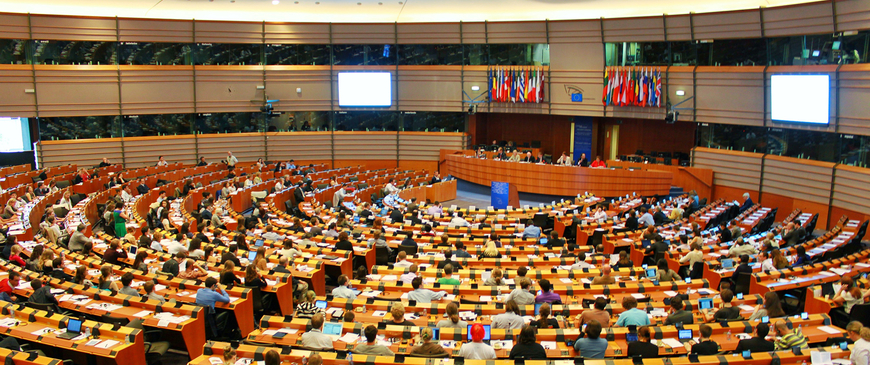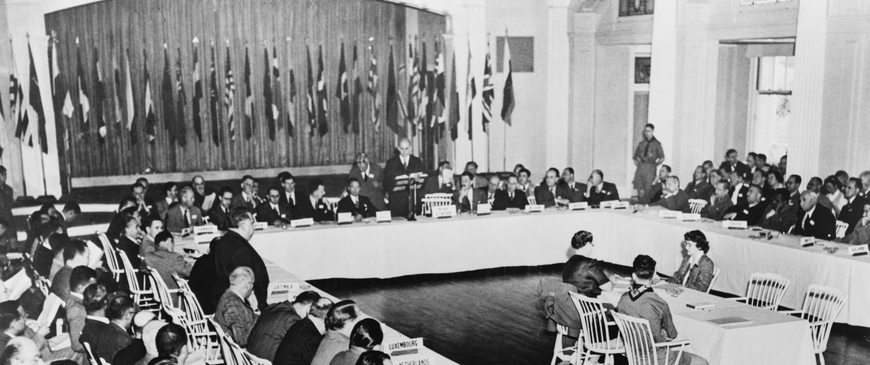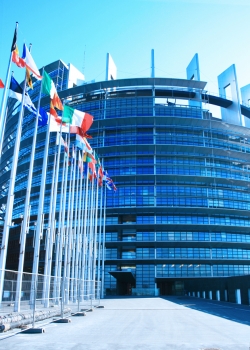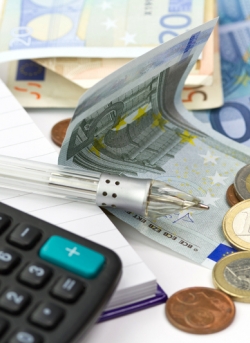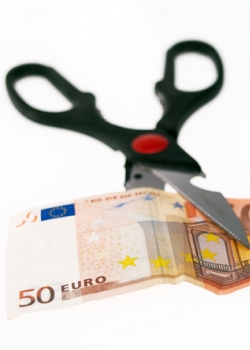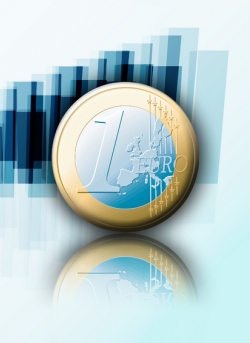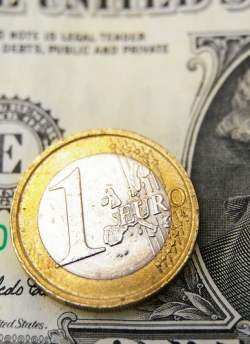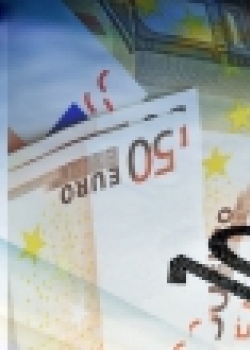Macroeconomics & the euro
Greece rescue is just a sticking plaster
30 March 2010
The Guardian
For several years it has been evident that any momentum the European Union had for further integration has been dwindling. For instance, despite the entry into force of the Lisbon treaty, the EU shows few signs of developing more united and effective foreign policies.
Europe cannot afford to let Greece default
15 January 2010
Financial Times
The eurozone cannot afford to make an example of crisis-hit Greece. Claims by officials and politicians in the currency bloc's fiscally more robust economies - including Wolfgang Schauble, Germany's finance minister - that the Greeks will have to find their own way out of the crisis, are not credible.
Look who's sclerotic
28 September 2009
International Herald Tribune
A popular Continental misconception about Britain is that it is some kind of ultra-free economy where there is limited social welfare and where the market has been introduced into every aspect of life.
Germany will not drive a European recovery
01 September 2009
Financial Times
The European Union’s biggest member goes to the polls in less than four weeks. Yet while Germany’s economic prospects rest precariously on a recovery in foreign demand, the campaign has been free of any real debate about the country’s extraordinary export dependence. This is worrying.
A sustainable EU economic recovery requires...
A sustainable EU economic recovery requires...
Economic liberalism in retreat
16 July 2009
The New York Times
Is the brief flowering of economic liberalism in Europe over? It is too soon to read the last rites, but the prognosis is not good.
The financial crisis, the subsequent discrediting of the Anglo-Saxon economies and the passing of the most economically liberal European Commission there has ever been have put liberal economic thinking on the defensive.
The financial crisis, the subsequent discrediting of the Anglo-Saxon economies and the passing of the most economically liberal European Commission there has ever been have put liberal economic thinking on the defensive.
The wages of recovery
15 April 2009
The Wall Street Journal
Everywhere in Europe the talk is of the need to cut costs. Companies have no choice but to respond to declining profits by reducing expenses.
Ten years on, the eurozone must beware of Greeks bearing debts
29 March 2009
The Times
Europe's leaders have plenty to fret about. The Czech Government, which holds the EU presidency, has collapsed. The European Commission is battling against the protectionist instincts of some states.
The real G20 agenda: From technics to politics
16 March 2009
Open democracy
The efforts of world leaders to find solutions to the economic crisis are intensifying. The last preparatory meeting before the leaders' summit on 2 April 2009 shows what needs to be done, says Katinka Barysch.
The summit of finance ministers and central bankers from the Group of Twenty (G20) countries took...
The summit of finance ministers and central bankers from the Group of Twenty (G20) countries took...
It's a fabrication that Britain doesn't make things any more
13 March 2009
The Times
Nicolas Sarkozy stung us when he claimed last month that Britain, unlike France, “has no industry”. Since the implosion of the financial sector, it has become an article of faith that the British economy is paying for its excessive reliance on services.
Les crises appellent une figure forte pour l'Europe
06 March 2009
La Croix
La période actuelle où est mise à l’épreuve la construction européenne exige, pour Charles Grant, non pas davantage de transferts de compétences, mais une personnalité de premier plan face au reste du monde.
A trade surplus is not always a sign of strength
04 March 2009
Financial Times
There has been a queue of commentators arguing that the strong economic performance of the US and the UK in the run-up to the financial crisis was an illusion, a product of excessive borrowing and an inflated financial sector.
Wij moeten de zwakke eurolanden helpen
02 March 2009
NRC Handelsblad
Twaalf maanden geleden leek het nog ondenkbaar dat een EU-lidstaat in een staatsschuldencrisis zou belanden. Toch behoort dit nu tot de mogelijkheden.
How to avoid a eurozone debt crisis
24 February 2009
The Wall Street Journal
Twelve months ago it seemed inconceivable that any European Union member could face a sovereign debt crisis. It would have been the stuff of fantasy to argue that Ireland or Austria could be among those at risk.
Crisis shows imbalances are not sustainable indefinitely
27 November 2008
Financial Times
Sir, Paul Betts (“All for one, but none for all to revive Europe’s fortunes”, November 24) argues that Germany should wait for other countries to boost their economies (and hence demand for German exports) rather than taking steps to boost German domestic demand.
This is no time to listen to the siren call of the euro
14 October 2008
The Guardian
Since the Labour party entered office in 1997, the UK economy has become more "European". One of the government's first acts in office was to sign up to the EU's social chapter. It followed this with the introduction of a minimum wage in 1999, along with sustained increases in public expenditure.
Don't undermine free markets
08 October 2008
International Herald Tribune
Commentators and politicians have been falling over themselves to read the last rites to "Anglo-Saxon" capitalism. Anglo-Saxons have undoubtedly been guilty of profligacy and hubris.
Why free markets have little to do with inequality
02 June 2008
Financial Times
Many Europeans believe liberal economic reforms are incompatible with social justice. The US and the UK, they point out, have more liberal markets for products and labour than in continental Europe - but also higher levels of poverty and income inequality.
Could the euro rule supreme? It's not worth it
27 November 2007
Financial Times
In the 1970s, John Connally, President Richard Nixon's treasury secretary, famously quipped to a group of visiting Europeans that "the dollar may be our currency, but it's your problem".
How to ensure the eurozone does not unravel
04 October 2006
Financial Times
The euro has to be a success if Europe is to flourish. Unfortunately, diverging trends in competitiveness within the eurozone threaten its stability.
Slow reform could bust up eurozone
19 September 2006
Business Week
The eurozone risks breaking up in the near future putting the entire EU single market into jeopardy unless member states – particularly Italy - undertake crucial economic reforms, according to a new report.
Entitled Will the eurozone crack?, the report by the London-based Centre for European Reform, argues that instead of...
Entitled Will the eurozone crack?, the report by the London-based Centre for European Reform, argues that instead of...

